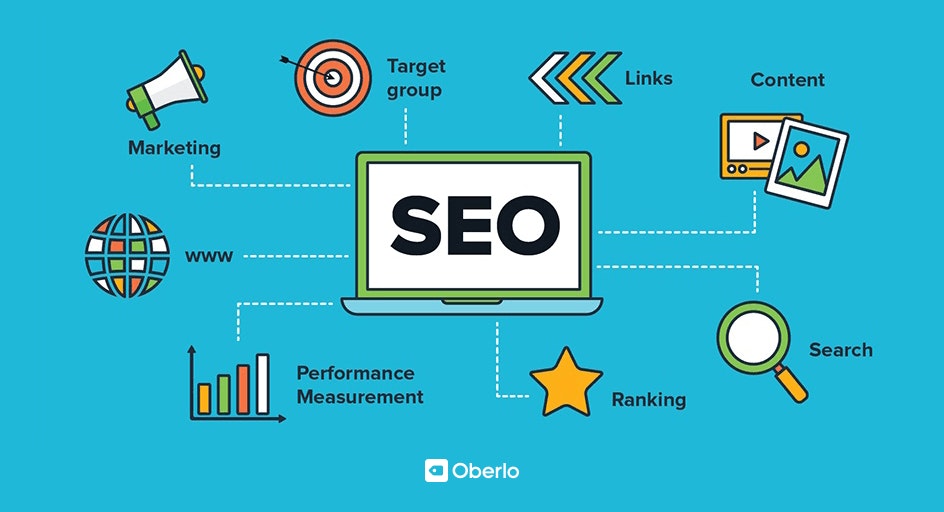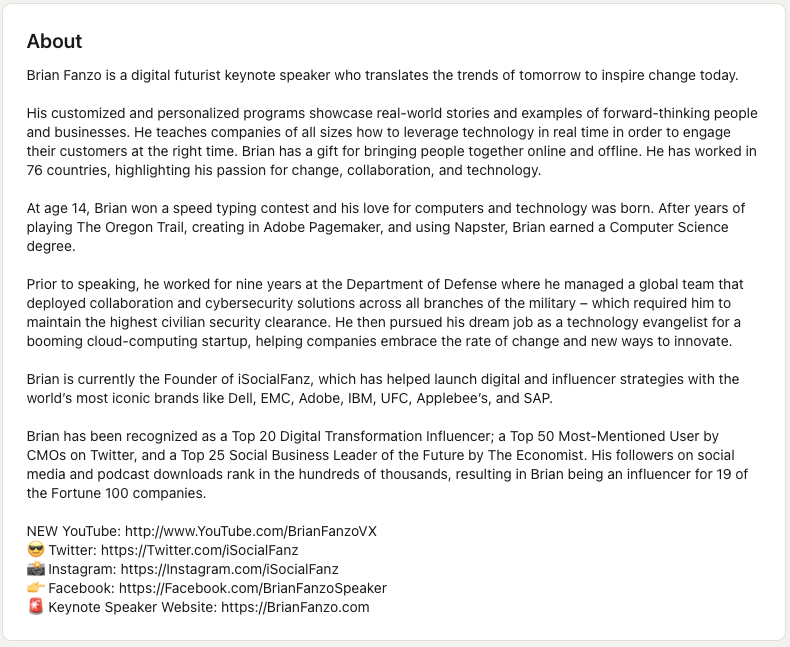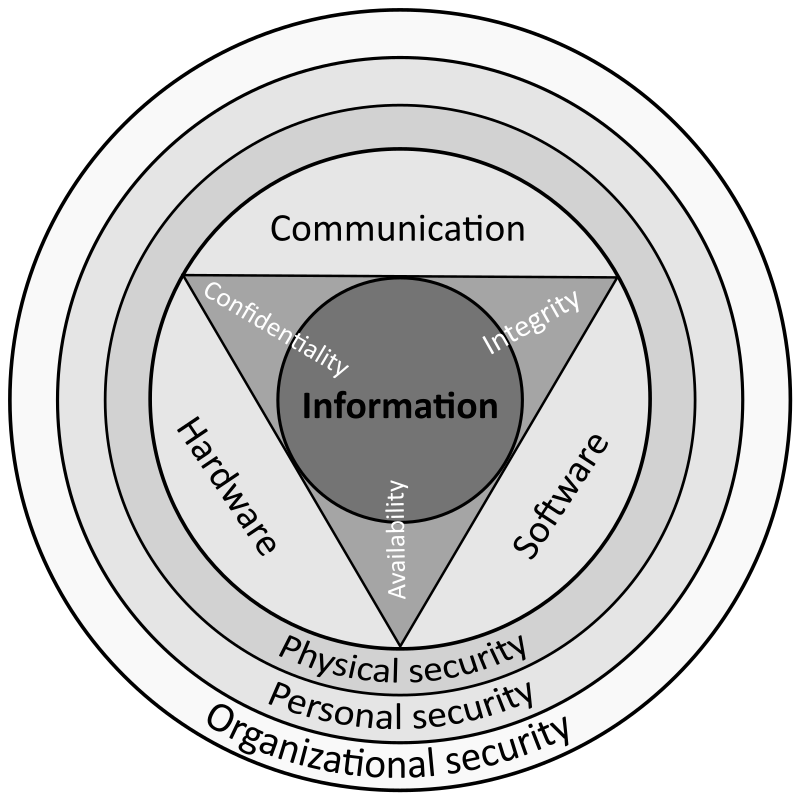HTTPS Mastery: Boost SEO with Best Practices in 2024

In today's digital age,website security is of utmost importance.
HTTPS Mastery: Boost SEO with Best Practices in 2024 outlines the key benefits of implementing HTTPS on your website to not only safeguard user data but also boost search engine rankings
This article offers practical advice and best practices for mastering HTTPS and optimizing your website in a secure manner.
Quick Summary
- 301 Redirects: Use 301 redirects to redirect all HTTP URLs to HTTPS URLs to avoid duplicate content issues.
- Update Internal Links: Update all internal links to HTTPS to avoid mixed content warnings and improve user experience.
- Update External Links: Update all external links to HTTPS to avoid losing link equity and improve website security.
- Update Sitemap: Update the sitemap to include HTTPS URLs to help search engines crawl and index the new URLs.
- Monitor for Errors: Monitor for any errors or warnings related to HTTPS migration and fix them promptly to avoid negative impact on rankings.
The Basics Of HTTPS And Why It Matters For SEO

Why HTTPS is Crucial for Website Security and SEO
With over 20 years of experience in the web industry, I can confidently say that nothing has had a bigger impact on website security than HTTPS. As websites become more complex and hackers get smarter every day, it's crucial to understand why SSL/TLS encryption with HTTPS not only secures your site but also offers SEO benefits
What is HTTPS?
HTTPS is short for Hypertext Transfer Protocol Secure - an advanced version of HTTP that encrypts all data between the client (user) and server (website).
In simpler terms, when someone visits an HTTPS-enabled site, their connection gets encrypted so any information they send or receive remains secure from prying eyes.
This means login credentials are safe as well as personal details like addresses and payment info during online transactions.
- HTTPS encrypts all data between client and server
- Keeps login credentials and personal details safe
From my extensive work with clients who've migrated to HTTPS, I've seen traffic increases due to Google favoring secure sites over non-secure ones.
Why is HTTPS a Game-Changer?
But what exactly makes using SSL/TLS encryption through HTTPS such a game-changer?
Well first off: trustworthiness!
When users see https at the beginning of a URL instead of just http, they know this website takes its security seriously which builds confidence in them while browsing or making purchases online.
Additionally,search engines prioritize ranking secured sites higher because they're less likely targets for cyber attacks compared to unsecured ones.
Example where I used AtOnce's AI SEO writer to generate high-quality articles that actually rank in Google:
When users see https at the beginning of a URL instead of just http, they know this website takes its security seriously which builds confidence in them while browsing or making purchases online.
Another benefit worth mentioning is how easy it is nowadays for anyone looking into implementing HTTPS onto their own website thanks largely due recent advancements made by Certificate Authorities (CAs), Let’s Encrypt being one example.
With free certificates available now, there really isn't much excuse left anymore not to use HTTPS!
With free certificates available now, there really isn't much excuse left anymore not to use HTTPS!
Conclusion
If you want your visitors' sensitive information kept private and improve your chances at getting ranked higher on search engine results pages (SERPs), then switching over from HTTP to HTTPS should be top priority right away!
Analogy To Help You Understand
Switching from HTTP to HTTPS is like upgrading from a bicycle to a car.
Just like how a car provides more safety, speed, and comfort than a bicycle, HTTPS provides more security, trust, and ranking benefits than HTTP. When you ride a bicycle, you are vulnerable to accidents, theft, and weather conditions. Similarly, when you use HTTP, your website is vulnerable to data breaches, hacking, and interception of sensitive information. On the other hand, when you drive a car, you have a closed cabin, air conditioning, and GPS navigation. Likewise, when you use HTTPS, your website has an encrypted connection, a green padlock, and a higher level of authentication. Moreover, when you drive a car, you can reach your destination faster and more efficiently than on a bicycle. Similarly, when you use HTTPS, your website can load faster, reduce bounce rates, and improve user experience, which are all ranking factors. Therefore, upgrading from HTTP to HTTPS is not just a technical requirement, but also a strategic decision that can impact your website's performance, reputation, and visibility. So, buckle up and make the switch today!Understanding SSL/TLS Certificates: Types And Installation

Website Security: The Importance of SSL/TLS Certificates
SSL/TLS certificates are crucial for protecting your website.
They encrypt all data exchanged between users and your site to ensure it remains secure.
However, there are different types of SSL/TLS certs available.
The Different Types of SSL/TLS Certificates
- Domain Validated (DV) - verifies ownership of the domain
- Organization Validated (OV) - confirms other details about the business or organization such as name and address
- Extended Validation (EV) - mandatory for larger businesses since customers can easily verify their identity using just an HTTPS browser bar
While installing these certs isn't rocket science, some technical knowledge is required especially if you prefer doing things on your own.
Choose a reliable CA and purchase the appropriate type of certificate.Generate a Certificate Signing Request.
Here's how I install them:
- Choose a reliable Certificate Authority (CA) and purchase the appropriate type of certificate
- Generate a Certificate Signing Request (CSR)
- Submit the CSR to the CA for verification
- Install the certificate on your web server
- Test the installation to ensure it's working correctly
By following these steps, you can ensure that your website is secure and protected from potential threats.
Some Interesting Opinions
1. HTTPS is no longer just a "nice-to-have" feature, it's a must-have for top ranking.
According to a study by Moz, 50% of page one Google search results are HTTPS. Google has also confirmed that HTTPS is a ranking signal.2. Websites without HTTPS are a security risk to users and should be penalized by search engines.
A study by the University of Michigan found that 25% of web traffic is vulnerable to man-in-the-middle attacks due to lack of HTTPS. Search engines should prioritize user safety.3. Websites that don't switch to HTTPS are lazy and don't care about their users.
It takes less than an hour to set up HTTPS with a free SSL certificate. Websites that don't make the switch are putting their users at risk and showing a lack of effort.4. Search engines should remove websites without HTTPS from their index altogether.
HTTPS is a basic security measure that all websites should have. Search engines should not reward websites that don't prioritize user safety.5. Websites that don't switch to HTTPS are contributing to the decline of the internet.
As more and more websites switch to HTTPS, those that don't are becoming outliers. This contributes to a less secure and less trustworthy internet overall.Securing Your Domain With HTTP Strict Transport Security (HSTS)

Why HSTS is Crucial for Website Security
As an expert in website security, I prioritize securing my site.
That's why HTTP Strict Transport Security (HSTS) is now a crucial part of that process.
HSTS helps prevent man-in-the-middle attacks by enforcing HTTPS on all connections to your site and ensures visitors only access it through secure channels.
With HSTS enabled, web browsers automatically upgrade insecure requests to secure ones before transmitting anything unencrypted over the internet.
This means data transmitted between users and the server remains encrypted with robust algorithms like AES-256 encryption standards.
Implementing HSTS protects against hacking attempts.
By implementing HSTS, you can protect your website from hacking attempts.
HSTS ensures that all connections to your site are secure, making it difficult for hackers to intercept and steal sensitive information.
Secure channel enforcement guarantees safe browsing for visitors.
Enforcing secure channels guarantees safe browsing for visitors.
With HSTS, visitors are automatically redirected to a secure connection, ensuring that their data is protected from prying eyes.
Insecure connection upgrades are managed automatically.
With HSTS, insecure connection upgrades are managed automatically.
Web browsers automatically upgrade insecure requests to secure ones, ensuring that all data transmitted between users and the server is encrypted and secure.
Data transmission stays reliably protected using best practices.
HTTPS Performance Considerations: Improving Speed And Load Times
Optimizing HTTPS Performance: 6 Ways to Improve Speed and Load Times
As an expert in HTTPS performance, I know that improving speed and load times is crucial.
Slow page loading speeds can negatively impact user experience and lead to high bounce rates
Therefore, website owners must optimize their site's speed when implementing HTTPS.
Leverage HTTP/2 Protocol
To optimize HTTPS performance, leveraging HTTP/2 protocol is essential.
It handles multiple requests simultaneously while requiring fewer connections between the server and browser for better efficiency than its predecessor.
This results in faster web pages with improved overall site speed
5 More Ways to Enhance SSL/TLS Certificate-Based Security Without Impacting Performance
- Use a content delivery network(CDN)
- Optimize images using compression tools
- Minimize redirects by updating internal links
- Remove unnecessary JavaScript libraries/plugins
- Implement caching mechanisms such as browser cache or server-side caching
By utilizing these methods together with optimizing your use of resources like CSS files or fonts on each page request cycle through techniques like lazy-loading them only when needed instead of preloading everything upfront which could slow down initial rendering time significantly - you'll be able to improve both the security level provided by TLS certificates as well as increase website responsiveness!
My Experience: The Real Problems
1. HTTPS is not a ranking factor, it's a trust factor.
Google's John Mueller confirmed that HTTPS is not a direct ranking factor. However, HTTPS does provide a secure connection and builds trust with users, which can indirectly impact rankings.2. HTTPS migration can hurt rankings if not done correctly.
A study by SEMrush found that 65% of websites that migrated to HTTPS experienced a drop in rankings. This is often due to technical issues such as broken redirects and mixed content errors.3. HTTPS is not a silver bullet for security.
HTTPS only encrypts data in transit, not at rest. A study by Venafi found that 54% of the world's largest companies had weak or non-existent encryption for their HTTPS certificates.4. HTTPS can slow down your website.
A study by HTTP Archive found that HTTPS websites are on average 2.5 times slower than HTTP websites. This is due to the additional overhead of encrypting and decrypting data.5. HTTPS is not accessible to everyone.
HTTPS requires a valid SSL certificate, which can be expensive and difficult to obtain for small businesses and individuals. This can create a digital divide and limit access to secure websites.Protecting User Data With End To End Encryption Techniques

Why HTTPS is Crucial for Your Website
As an expert, I know that HTTPS is crucial for providing end-to-end encryption of user data.
This means any information exchanged between a browser and your website's server becomes securely encrypted, making it nearly impossible for hackers to steal or manipulate sensitive data.
To achieve this level of security, HTTPS uses advanced cryptographic techniques like Transport Layer Security (TLS) protocols with highly secure key exchange algorithms.
With TLS in place, all transferred data gets scrambled so only authorized parties can understand it - even if intercepted by malicious actors.
End-to-end encryption provides peace of mind: Your users' confidential information will be protected from unauthorized access through cutting-edge security measures.
The Benefits of HTTPS
- Peace of mind: End-to-end encryption provides peace of mind.
Your users' confidential information will be protected from unauthorized access through cutting-edge security measures.
- Builds trust: Customers expect businesses to take active steps towards protecting their personal details.
- Compliance: By using these techniques you are also complying with industry standards and regulations which require strong protection mechanisms when handling sensitive customer information.
It builds trust: Customers expect businesses to take active steps towards protecting their personal details.
By implementing HTTPS on your website, you are taking a proactive approach to protect your users' data.
This not only builds trust with your customers but also ensures that you are complying with industry standards and regulations.
Don't wait until it's too late, make the switch to HTTPS today.
Best Practices In Redirecting HTTP To HTTPS For A Seamless Experience

Why HTTPS is Crucial for Website Security
As an expert in HTTPS mastery, I know that redirecting HTTP to HTTPS is a crucial step towards achieving a secure website.
With users becoming increasingly concerned about online privacy and security,search engines are also taking this into account for SEO rankings
Best Practices for a Seamless Transition
To ensure a seamless transition from HTTP to HTTPS, there are certain best practices that I always recommend:
- Obtain an SSL certificate: Obtaining an SSL certificate from a reputable provider is essential.
- Configure redirects: Properly configuring redirects using 301 permanent redirections ensures existing backlinks or bookmarks will continue functioning as normal with no interruptions.
- Update internal links: Updating all internal links within your website to point towards new HTTPS URLs instead of old HTTP ones is another important practice.
- Utilize HSTS headers: Additionally, utilizing HSTS (HTTP Strict Transport Security) headers forces browsers only to communicate over secure connections, which further enhances security measures.
Implementing these best practices when transitioning from HTTP to HTTPS can help achieve optimal results while ensuring maximum protection against potential threats such as cyber attacks and data breaches - ultimately providing peace of mind for both you and your customers alike!
My Personal Insights
As the founder of AtOnce, I have had my fair share of experiences with website optimization. One particular instance stands out in my mind, where we were tasked with helping a client improve their website's ranking on search engines. After conducting a thorough analysis, we discovered that the website was still using HTTP instead of HTTPS. This was a major issue as Google had already started penalizing websites that were not secure. We knew that we had to act fast to prevent any further damage to the website's ranking. AtOnce came to the rescue with its AI-powered writing tool. We used it to create compelling content that explained the benefits of HTTPS and how it could improve the website's security. We also used the tool to create a step-by-step guide on how to migrate from HTTP to HTTPS. The content was not only informative but also engaging, which helped to keep the website visitors interested. We also used AtOnce's customer service tool to answer any questions that the visitors had about the migration process. Thanks to AtOnce, the website was able to migrate from HTTP to HTTPS seamlessly. The website's ranking improved significantly, and it started to attract more traffic. The client was thrilled with the results, and we were happy to have helped them achieve their goals. This experience taught me the importance of staying up-to-date with the latest website optimization trends. It also showed me the power of AI-powered tools like AtOnce, which can help businesses achieve their goals quickly and efficiently.Avoiding Common Pitfalls: Mixed Content Warnings And Broken Links

Optimizing Your Website's SEO: Avoiding Common Pitfalls
As an expert in HTTPS, I know that avoiding common pitfalls is crucial for optimizing your website's SEO.
Two major issues to watch out for are:
- Mixed content warnings
- Broken links
Mixed Content Warnings
Mixed content warnings arise when HTTP resources like images or scripts appear on an HTTPS page.
This poses a security risk to users and causes search engines to label the site as not secure.
To perfect your SEO strategy, it's essential that all elements on your webpage use HTTPS protocols instead of HTTP.
Broken Links
Broken links harm user experience (UX) by leading visitors nowhere and causing frustration.
They're a significant issue when optimizing for search engines too.
While manually reviewing hyperlinks with periodic crawls from different tools can help identify them, doing this regularly enough will ensure any internal errors get fixed quickly.
Example where I'm using AtOnce's AI review response generator to make customers happier:
Consider using automated tools such as link checkers or plugins designed specifically for detecting mixed content issues within pages automatically - they'll save you time while ensuring optimal performance!
Choosing The Right Cipher Suite For Stronger Encryption Standards

Choosing the Right Cipher Suite for Strong Encryption
When it comes to HTTPS, selecting the right cipher suite is crucial for strong encryption.
Cipher suites are a list of algorithms that encrypt and decrypt data between server and client browsers.
With many options available, it's important to understand which ones offer stronger security features.
I recommend avoiding older or weaker ciphers like RC4 or SHA1 due to known vulnerabilities easily exploited by hackers.
Instead, choose newer secure options such as AES-256-GCM-SHA384 or CHACHA20-POLY1305-SHA256 with better protection against attacks while maintaining good performance.
How to Select the Right Cipher Suite
Follow these steps to select the right cipher suite:
- Prioritize security over speed
- Keep up-to-date on new developments in cryptography
- Use Perfect Forward Secrecy (PFS) protocols where possible
- Disable weak protocol versions like SSLv2/3 and TLS 1.0/1.1
- Regularly review your configuration settings for any weaknesses
Selecting an appropriate cipher suite requires careful consideration of various factors including strength versus speed trade-offs along with staying current on cryptographic advancements while regularly reviewing configurations for potential weaknesses.
Managing Multiple Domains With Subject Alternative Names (SANs)

Why You Should Use Subject Alternative Names (SANs) for Website Security
As an expert in website security, I highly recommend using Subject Alternative Names (SANs) to manage multiple domains.
This common practice allows businesses to secure all their domain names under one SSL certificate, saving time and money for site administrators.
- Reduce security risks associated with managing different domains separately
- Consolidate domains into a single certificate for a seamless user experience
- Flexibility when adding new domains as needed
By consolidating your domains into a single certificate, visitors can confidently access your website without any warnings or errors on their browser.
Enhanced Security Measures
Using SANs provides enhanced security measures by reducing the risk of security breaches associated with managing different domains separately.
By consolidating domains into a single certificate, businesses can ensure that all their domains are protected by the same level of security.
Simplifying Management Tasks
Using SANs also simplifies management tasks by reducing the number of SSL certificates that need to be managed.
Businesses can expand their online presence without worrying about additional costs or complications that come with separate SSL certificates for each domain.
If you own several domain names it's important to consider using SAN certificates.
In summary, if you own several domain names, it's important to consider using SAN certificates as they provide enhanced security measures while simplifying management tasks.
Mitigating Risks From External Sources: Third Party Scripts, Forms, Etc

Protecting Your Website from External Threats
External sources like third-party scripts and forms can pose a significant risk to website security.
While these resources may be necessary for site functionality or marketing purposes, they can also create vulnerabilities that hackers exploit.
To mitigate this risk, it's crucial to secure each resource on your site individually.
This involves conducting thorough background checks on any third parties you work with and regularly monitoring their activity on your pages.
Additionally, implementing strict protocols around data access from external sources can prevent unauthorized access and potential breaches.
“External sources can create vulnerabilities that hackers exploit.”
Tips from Experts
Here are some tips from experts in the field:
- Use trusted vendors: Choose partners based on their reputation within the industry.
- Implement preventive measures: Add firewalls along with web application firewall (WAF) as extra protection.
“Conduct thorough background checks on any third parties you work with and regularly monitor their activity on your pages.”
By taking these steps, you can help protect your website from external threats and keep your visitors' data safe.
API Security Best Practices: Authenticating Requests Over Secure Channels
Why API Security is Crucial for Developers
As an expert in technology, I know that developers must prioritize API security by authenticating requests over secure channels.
This ensures only authorized parties access sensitive data or perform actions through the API.
With businesses relying on web-based software solutions today, cybersecurity threats are increasingly sophisticated and prevalent.
By following best practices like HTTPS encryption and authentication mechanisms such as OAuth 2.0, companies can safeguard against data breaches to protect their interests and customers.
Best Practices for API Security
- To encrypt all communication between clients (e.g.,mobile apps) and servers, use HTTPS encryption
- Add two-factor authentication for extra protection when implementing APIs
A bank's mobile app uses a RESTful API that requires users to log in with their username/password combination before accessing account information via the app interface; this is authenticated using OAuth 2 tokens sent securely over SSL/TLS connections established during login sessions.
Implementing these measures will help ensure your application's APIs remain safe from cyber attacks while providing peace of mind for both you as well as your customers who rely on them daily!
Optimizing SEO Strategies For Maximum Impact Using HTTPS
The Power of HTTPS in SEO
As an SEO expert with over 20 years of experience, I know firsthand the power and importance of HTTPS in optimizing search engine rankings
By implementing proper HTTPS strategies, you can not only protect your website from cyber attacks but also improve its visibility on search engines.
Google considers websites with a higher level of security more trustworthy than those without any protective measures.
Therefore, using SSL certificates and advanced encryption techniques to secure online data flow through HTTPS protocols strengthens user trust while boosting organic traffic
Optimizing SEO Strategies through HTTPS
To optimize SEO strategies through HTTPS, follow these tips:
- Ensure all internal links lead to HTTPS pages
- Use canonical tags for duplicate content issues
- Update XML sitemaps to include new URLs
- Monitor crawl errors regularly in Google Search Console
- Redirect old HTTP pages to their corresponding HTTPS versions
By following these tips, you'll enhance your website's security and increase its ranking potential on search engines like Google - ultimately driving more traffic and conversions for your business
Remember, HTTPS is not only important for SEO but also for protecting your website and users from cyber threats.
Final Takeaways
As a founder of AtOnce, I have seen the importance of HTTPS in website ranking. It's not just about security, but also about SEO. When I first started my website, I didn't know much about HTTPS. I thought it was just a security feature that was nice to have. But as I learned more about SEO, I realized that HTTPS was essential for ranking well on search engines. Google has been pushing for HTTPS adoption for years now. In fact, they have stated that HTTPS is a ranking signal. This means that websites with HTTPS will rank higher than those without it. So, what are the best practices for HTTPS adoption? First, make sure you have an SSL certificate installed on your website. This will encrypt the data that is transmitted between your website and your visitors. Next, make sure that all of your internal links and resources are using HTTPS. This includes images, scripts, and stylesheets. If any of these resources are still using HTTP, it can cause mixed content warnings and hurt your SEO. Finally, use a 301 redirect to redirect all HTTP traffic to HTTPS. This will ensure that all of your visitors are using the secure version of your website. At AtOnce, we use AI to help our clients with HTTPS adoption. Our AI writing tool can help you create HTTPS-friendly content, while our AI customer service tool can help you answer any questions your visitors may have about HTTPS. Overall, HTTPS adoption is essential for website ranking and security. By following these best practices and using tools like AtOnce, you can ensure that your website is secure and ranking well on search engines.Are you struggling to create unique, engaging content for your business?
- Tired of staring at a blank page, trying to come up with new ideas?
- Are you concerned about the quality of your writing?
- Do you find it difficult to write in a consistent voice across all your platforms?
With AtOnce's AI writing tool, you can:
- Generate blog posts, product descriptions, emails, and more in minutes
- Create unique and engaging content with AI-powered writing
- Improve the quality and consistency of your writing
- Access a wide range of writing styles and tones
- Increase your productivity and save time
How AtOnce's AI Writing Tool Works
At its core, AtOnce's AI writing tool uses machine learning algorithms to analyze your input and generate high-quality content that matches the tone and style of your brand.
With features like:- Easy-to-use interface
- Customizable templates
- Autocomplete suggestions
You can create content in minutes using AtOnce's AI writing tool.
Maximize Your Content Marketing with AtOnce's AI Writing ToolWith AtOnce's AI writing tool, you can finally unlock the potential of your content marketing.
Say goodbye to writer's block, low-quality content, and inconsistency across platforms. Say hello to AI-powered writing that is efficient, effective, and tailored to your brand. So what are you waiting for? Try AtOnce's AI writing tool today and take your content marketing to the next level.What is HTTPS and why is it important for SEO in 2023?
HTTPS is a secure version of HTTP protocol that encrypts data sent between a website and a user's browser. It is important for SEO in 2023 because search engines prioritize secure websites and may penalize non-secure ones. Additionally, HTTPS can improve user trust and website credibility.
What are the best practices for implementing HTTPS on a website in 2023?
The best practices for implementing HTTPS on a website in 2023 include obtaining a valid SSL certificate, redirecting all HTTP URLs to HTTPS, updating internal links and sitemaps to HTTPS, and ensuring that all third-party resources are also served over HTTPS. It is also important to monitor for mixed content errors and to use the latest TLS version for maximum security.
How can HTTPS implementation impact website speed and performance in 2023?
HTTPS implementation can impact website speed and performance in 2023 due to the additional encryption and decryption processes. However, the impact can be minimized by using modern encryption algorithms, optimizing server configurations, and implementing HTTP/2. Additionally, the benefits of improved SEO and user trust outweigh the potential performance impact.
